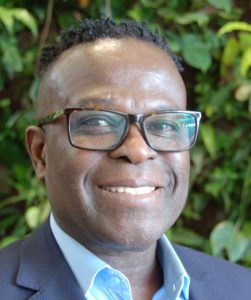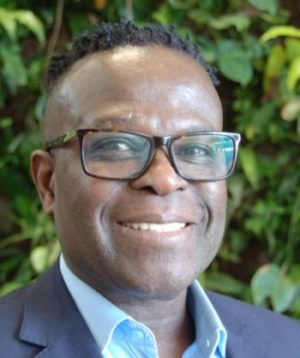
Stop Blaming the ‘Mzungu’: Homosexuality is as African as it is Universal.”
by Dr. Kwaku Kusi-Appiah
Wednesday 20 March 2024
——————————————
“…homosexuality in Africa has long been in existence.”
Annica Marincowitz, Sunday Times
“Homosexuality should not be a criminal offence….”
Former Cardinal Peter Turkson of Ghana
——————————————–
Introduction
Homosexuality existed in Africa long before Don Diogo de Azambuja of Portugal set foot on the African soil (Elmina, Ghana) in 1482. Today, most Black elites (including Christians and Muslims) are engaged in revisionist history – they insist that homosexuality is un-African and must be considered a huge taboo. This is especially so at a time when more and more countries worldwide are affirming gay rights and everything in-between. In this short piece, I argue that homosexuality is very African and that all efforts at criminalizing them could be better directed towards eliminating all forms of poverty in the motherland.
Origins of homosexuality
For centuries, Africans did not see gender as a binary in the way that their European colonizers did, nor did they correlate anatomy to gender identity. In their book “Tommy Boys, Lesbian Men”, Morgan and Wieringa identified several same sex practices in ancient and contemporary Africa (Morgan & Wieringa (2007). In 1964, archaeologists excavated a tomb in Egypt with two men’s bodies embracing each other as lovers. This excavation has been dated back to 2400 BC (Reeder, 2000). Furthermore, among the Igbos and Yorubas of Nigeria, there was no binary of genders, and gender was not assigned to babies at birth, but instead until later in life (Urama, 2019; Ajibade, 2013). In the spirit of perceiving how marriage is understood in the African context, Urama found that:
“Same-sex marriage among women is used to bridge the gap created by the challenges of the socially and culturally constructed gender roles with the aim of “male daughters” and “female husbands” becoming sons and husbands to wives for procreation and continuity…”
(Urama, 2019).
Sexuality and gender were more about preserving the community – performability that leads to progress within the community was the goal. Reflecting on what we have become in the 21st century, Ajibade argues that:
“…the preconceived obscenity of lesbianism and homosexuality among the Yorùbá [today] hinges on the culture of silence within the cultural milieu.”
(Ajibade, 2013).
In the same vein, the Dagaaba people of present-day Ghana assigned gender not based on one’s anatomy, but rather the energy one presents (Dery & Aposigah, 2021). Further to their acceptance of same-sex relationships, many African societies had deities that were portrayed androgynously, and goddesses such as Mut (the goddess of Motherhood) and Sekmeht (goddess of war) are often depicted as women with erect penises (Rupp, 2009). In the 16th century, for example, the Imbangala people of Angola had men in women’s apparel, with whom they kept amongst their wives (Chitando & Mateveke, 2017). Additionally, it is instructive to note that King Mwanga II of Buganda (present-day Uganda), who actively opposed Christianity and colonialism, was an openly gay monarch [emphasis mine] (Boakye, 2018; Ewins, 2011).
Homophobia: Legacy of the British Empire
These examples, confirm the historicity and visibility of same-sex relations in pre-colonial Africa (Asante, 2020). Homosexuality in Africa predated the European colonial conquest of Africa, and homophobia is an European import to Africa (Buckle, 2020; Kalende, 2014; Epprecht, 2008). Our colonial masters established systems of surveillance and regulation to make sure that homosexuality is sanctioned to suit their own parochial goals (Alozie, 2021) – and they did this effectively through religion and western education.
In the beginning, everything colonizers found in Africa was evil, uncouth, uncivilized, profane, savage, barbaric, backward and pagan. They worked hand in glove with the African elites they created to malign everything African. We were supposed to do everything the Western way, and under their supervision, and through their surrogates (the educated and religious Black man).
And so, the colonizer and his surrogate (the educated Blackman) used coercion (the gun) and the ‘threat’ of salvation (foreign religion) to achieve their sinister plans of exploiting our resources. Observations of same-sex relations in many African cultures were considered by European colonizers as further proof of African inferiority (Alozie, 2021). As Chinua Achebe poignantly puts it:
“The white man is very clever. He came quietly and peaceably with his religion. We were amused at his foolishness and allowed him to stay…He has put a knife on the things that held us together and we have fallen apart.”
(Chinua Achebe, Things Fall Apart).
Upholding human rights in the motherland:
While Western societies were criminalizing homosexuality and even sentencing them to death, Africans were upholding the dignity of humankind by acknowledging the legitimacy of same-sex rights long before the West viciously invaded Africa for their selfish ends. In 1533, King Henry VIII signed the Buggery Act, which criminalized sexual intercourse between two males. The last homosexuals to be sentenced to death by hanging in England were in 1835. Thankfully, in 1967 the Sexual Offences Act was passed in England which decriminalized private homosexual acts between men aged over 21.
Another view is possible.
Ironically, many former colonies still retain “anti-sodomy” laws that date back to colonial days. The British colonial Offenses Against the Person Act (1861) remains in force in Sierra Leone. In Mauritius, same-sex relations are still criminalized under section 250 of the Criminal Code, a legacy of the colonial era. Recently, Ghana became the latest African country to pass an anti-homosexuality law (Zani, 2023). Other countries, such as Nigeria, Kenya, and Uganda, have legislation in place that criminalizes homosexuality (Asante, 2020; Chitando & Mateyeke, 2017; Mark, 2012).
But there are progressive countries in Africa where homosexuality has been decriminalized. For example, South Africa has strong legal protections for homosexuals. Angola’s new penal code of January 2021 no longer criminalizes same-sex conduct. Cape Verde and Gabon have decriminalized same-sex conduct. Mauritius’ Equal Opportunities Act 2008 protects against discrimination based on sexual orientation, including in employment, education, and accommodation. In June 2020, progressive Botswana also overturned colonial-era laws which criminalized homosexuality. In doing so, Judge Michael Leburu declared that:
“…the anti-sodomy laws are a British import…and were developed without the consultation of local peoples”. (Emphasis mine)
(Michael Leburu, 2020).
Homosexuality existed long before the first European set foot on African soil. Europeans did not bring homosexuality to Africa. The West came and criminalized same-sex conduct to advance their agenda.
Decriminalizing homosexuality is about human rights, and so, just like Black people vehemently oppose racism and all forms of discrimination (and rightly so), it is also essential to respect the rights of ‘others’.
Ma no asi!
Works Cited
Ajibade, G. O. (2013). Same-sex relationships in Yoruba culture and orature. Journal of Homosexuality, 60(7), 965-983.
Alozie, E (2021). “Did Europe Bring Homophobia to Africa? In Black Perspectives
Asante, G. (2020). Decolonizing the erotic: Building alliances of (queer) African eros. Women’s Studies in Communication, 43(2), 113-118.
Boakye, B. (2018). King Mwanga II of Buganda, the 19th century Ugandan king who was gay.
Buckle, L (2020). African sexuality and the legacy of imported homophobia.
Chitando, Ezra, & Mateveke, Pauline. (2017). “Africanizing the discourse on homosexuality: challenges and prospects”. Critical African Studies, (9)1: 124-140.
Dery, I., & Apusigah, A. A. (2021). ‘So Kuoↄ Kye Bϵ Yi’: disrupting constructions of masculinities among the Dagaaba of Northwestern Ghana. Norma, 16(1), 6-22.
Epprecht, M. (2008). Unspoken facts: a history of homosexualities in Africa.
Ewins, L.H. (2011). The Criminalization of Sexual Orientation: Why Uganda’s Anti-Homosexuality Act Threatens Its Trade Benefits with the United States, 34 B. C. INT’L & COMP. L. REV. 147.
Kalende, V. (2014). Africa: homophobia is a legacy of colonialism. Guardian Africa Network
McNamarah, Chan Tov (2018). “Silent, Spoken, Written, and Enforced: The Role of Law in the Construction of the Post-Colonial Queerphobic State,” Cornell International Law Journal, (51)2, Article 6. Available at: https://scholarship.law.cornell.edu/cilj/vol51/iss2/6
Morgan, R. & Wieringa, S. (2007). Tommy boys, lesbian men, and ancestral wives: female same-sex practices in Africa.
McKaiser, E. (2012). Homosexuality un-African? The Claim is an historical embarrassment.
Mark, M. (2012). Nigerian Court Jails Actor for Homosexuality Under Colonial Law, the Guardian newspaper https://www.theguardian.com/world/2012/sep/ 21/nigeria-court-jails-actor-gay-offence [https://perma.cc/E2SY-NPS5].
Naadi, T. (2024). Ghana passes bill making identifying as LGBTQ+ illegal, BBC News.
Offenses Against the Person (1861). An Act to consolidate and amend the Statute Law of England and Ireland relating to Offences against the Person. https://database.ilga.org/api/downloader/download/1/SL%20-%20LEG%20-%20Offenses%20Against%20the%20Person%20Act%20(1861)%20-%20OR(en).pdf
Reeder, G. (2000). “Same-Sex Desire, Conjugal Constructs, and the Tomb of Niankhkhnum and Khnumhotep,” World Archaeology, 32(2), p. 193-208.
Rupp, Leila, J. (2009). Sapphistries: A Global History of Love between Women.
Urama, E. N. (2019). The values and usefulness of same-sex marriages among the females in Igbo culture in the continuity of lineage or posterity. SAGE Open, 9(2), 2158244019850037.
Zani, D. (2023). Ghana Cardinal Peter Turkson: It’s time to understand homosexuality.
Dr. Kwaku Kusi-Appiah,a demographer and environmentalist is an adjunct professor at Ottawa’s Carleton University. His research seeks to provide a clearer understanding of non-market strategies that determine access to community resources, and how the resulting inequities shape livelihoods in marginalized spaces of Canada and the developing world. Kwaku Kusi-Appiah was president of the Ghana Association of Ottawa (1995-2003) and senior advisor on Diversity to the Mayor of Ottawa (2004- 2006) where he led many multi-disciplinary teams to solve complex diversity issues in a timely & sensitive manner. In September 2018, Kusi-Appiah was appointed by the Lt. Governor of Ontario as a public member of the Board of Directors of the Ontario College of Social Work and Social Service Workers (OCSWSSW), a position he held till 2021..
************************************************************************************************

